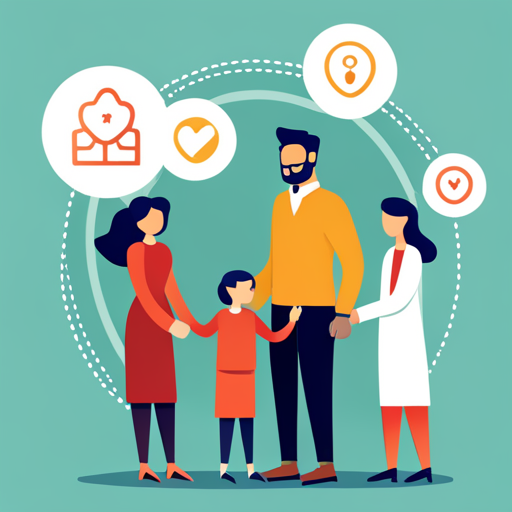There are many reasons why families decide to use an egg donor. You may have tried fertility treatments already without success. You or your partner may be unable to physically carry a baby so you are considering using a surrogate and an egg donor to have biological children. Or maybe genetic disorders run in your family and you’re trying to avoid them. There are a lot of reasons families seek out an egg donor. Whichever the reason, we want to make sure you understand the costs.
If you are looking into an egg donor you may have already tried multiple rounds of other fertility treatments, such as intrauterine insemination (IUI) or in vitro fertilization (IVF). This means that the cost of egg donation will be added to what you’ve already paid in previous fertility costs. If you are considering whether egg donation, you will want to understand how it will fit into your budget.
What is egg donation?
To begin, a donor (or person who is giving their eggs to a person or couple) will take medicine to help them make a large number of eggs. The procedure removes the eggs. After the procedure, the eggs are checked to make sure they are healthy and usable. If the eggs are approved, they can be used for a round of in vitro fertilization (IVF), and/or frozen for later use.
Donors typically work with egg donation centers or “egg banks,” but some donors are friends or family members who volunteer to help. Some fertility clinics have their own in-house egg donation centers. Success of the egg donation process depends on many factors, but a 2018 National Summary Report suggested an overall birth rate of 42.7% after using a fresh egg donation and IVF.
How much does an egg donor cost?
As the use of donor eggs becomes more common, more families are asking themselves the question “how much do egg donors cost?” As with the other fertility treatments we’ve written about, it depends! Some eggs cost more than others. Donor eggs with the highest price tag include those from:
- Egg donors who have helped other people get pregnant in the past
- Jewish egg donors
- Asian egg donors
If you want to get eggs from a specific type of donor you may have to spend more time figuring out which clinics have what you are looking for, and also pay more for those eggs. You can save on costs if you are more flexible about who or where your donor eggs come from.
Egg donors cost between $5,000 and $10,000 dollars. This process is usually not covered by your insurance, but it is always important to call your insurance company and check with them directly to see what they will cover.
What other costs come with using an egg donor?
Paying an egg donor is only part of the price you’ll have to pay. The additional costs for using an egg donor can also include:
| Item | Average Cost |
| Hiring a lawyer to handle any legal agreements between you and the egg donor | $800 |
| Egg donor insurance coverage | $297 |
| Escrow account management fee | $300 (price can vary widely) |
| Legal representation for the egg donor* | $800 |
| Egg donor psychological evaluation* | $450 |
A surprising factor in the cost of egg donation is the need for the use of an escrow account. Families are often required to use escrow during the process of adoption, surrogacy, and other fertility treatments. Using an escrow means they make their payments to the donor through a third-party to insure nobody is taken advantage of. There are escrow management companies that specialize in working with families throughout the process of building their family. The above fees do not include the cost of medical procedures associated with using egg donors, such as IVF or surrogacy.
The average cost all together of using a donor egg, IVF, and other corresponding fertility treatments to have a single round is estimated to be around $38,000 total. The average cost per live birth for families using egg donors and IVF was estimated to be $72,000 in 2010. The cost for your family will vary greatly on your insurance coverage, the rates in your state, and the number of rounds used.

Options for financing
For most families, the cost of fertility treatments can be overwhelming. With price tags that can be higher than the average family’s yearly take home pay, it is important to consider what payment options are right for you. Some fertility clinics have in-house financing, or payment plans, where the clinic itself is the lender. The clinic works with your family to establish a payment plan that works for you.
Other clinics partner with lending organizations that offer third-party financing. Lastly, there are stand-alone lending companies that specialize in fertility that offer personal loans for fertility treatments. It is important to take your time to fully understand the terms of these options, so that you can make an educated decision about whether or not you should get financing to cover your costs.

In summary
- Egg donation’s added cost is donor compensation (how much you pay your egg donor) which ranges between $5,000 and $10,000.
- There are other fees associated with the process, such as legal fees and escrow.
- Egg donor cost would be on top of the cost of IVF, surrogacy, and other fertility treatments.
- Because insurance rarely covers the process, the price would be out-of-pocket, meaning you would pay for it all yourself, although there are some possibilities for financing.
While you are TTC (trying to conceive) and considering an egg donor, you’ll want to use this pricing information to help you make your decision. Using an egg donor, while expensive, can end with amazing results for some families. Costs vary widely, depending on many different factors.
For even more financial guidance from certified professionals at no cost to you, refer Pasito to your company. Through personalized benefits and financial guidance, Pasito helps you cut down on thousands of taxes annually. These tax savings can then be distributed elsewhere (think: egg donor expenses), thus increasing your financial wellness.
Disclaimer: We try our best to provide you helpful content. However, we do not offer financial, legal, or tax advice. Please speak with a professional about your personal situation.








